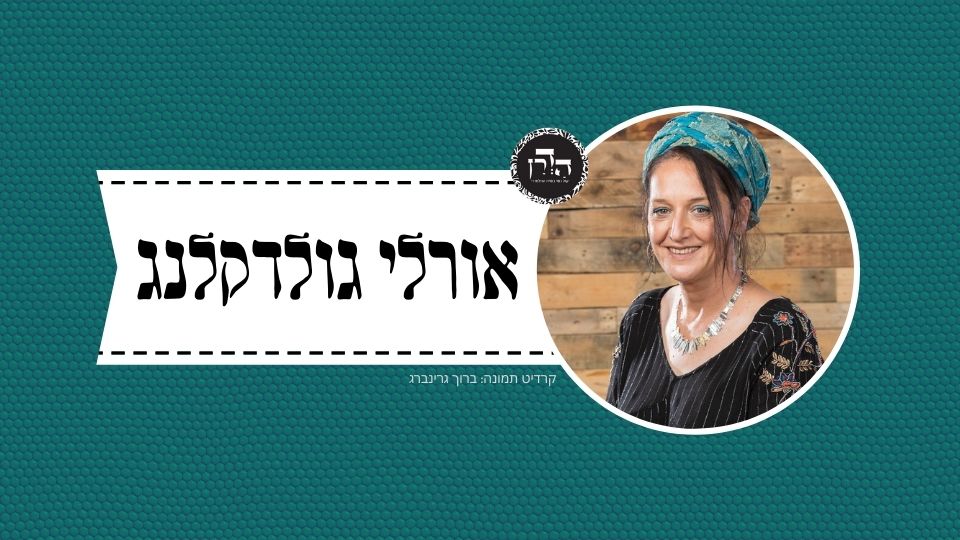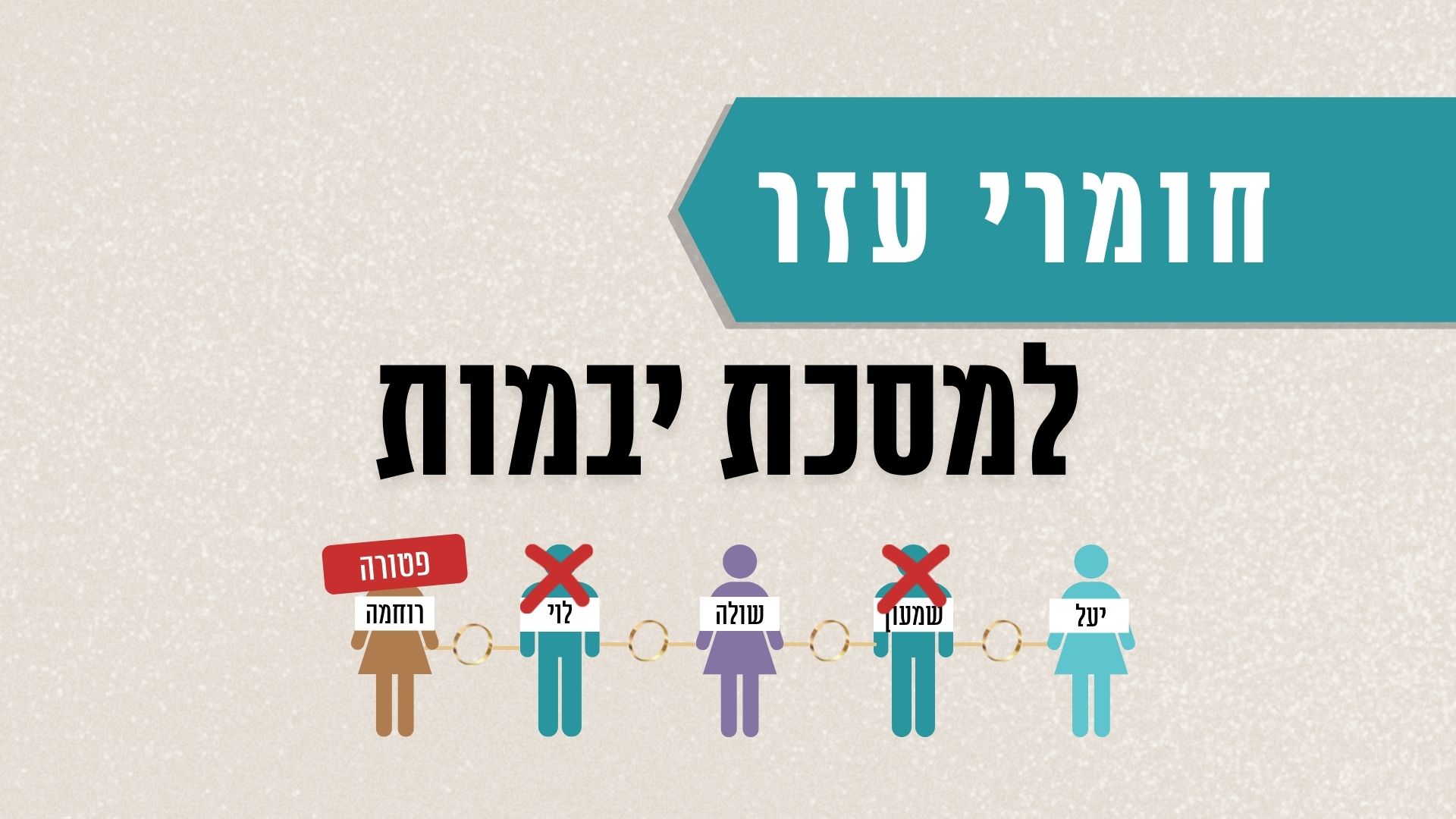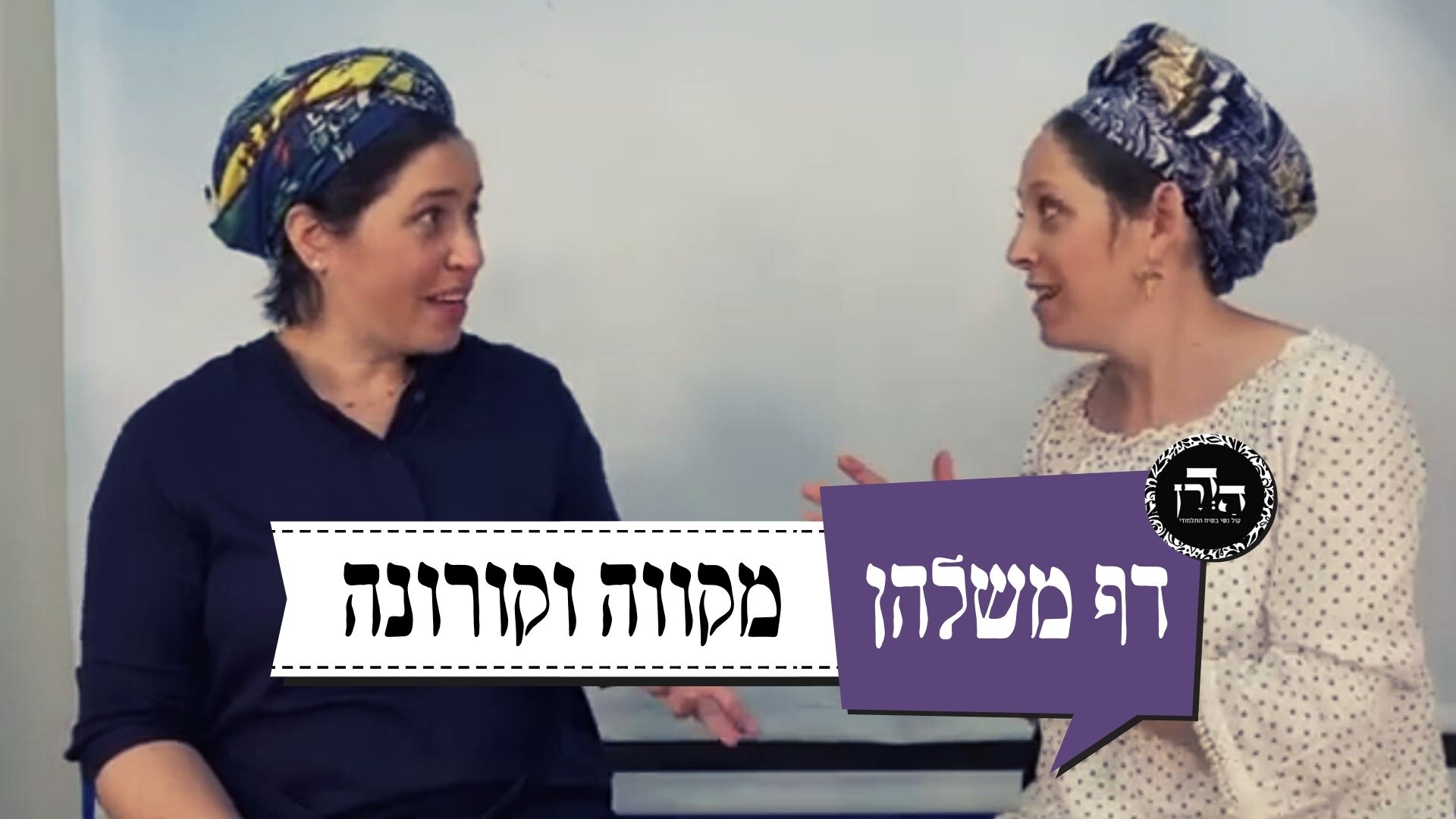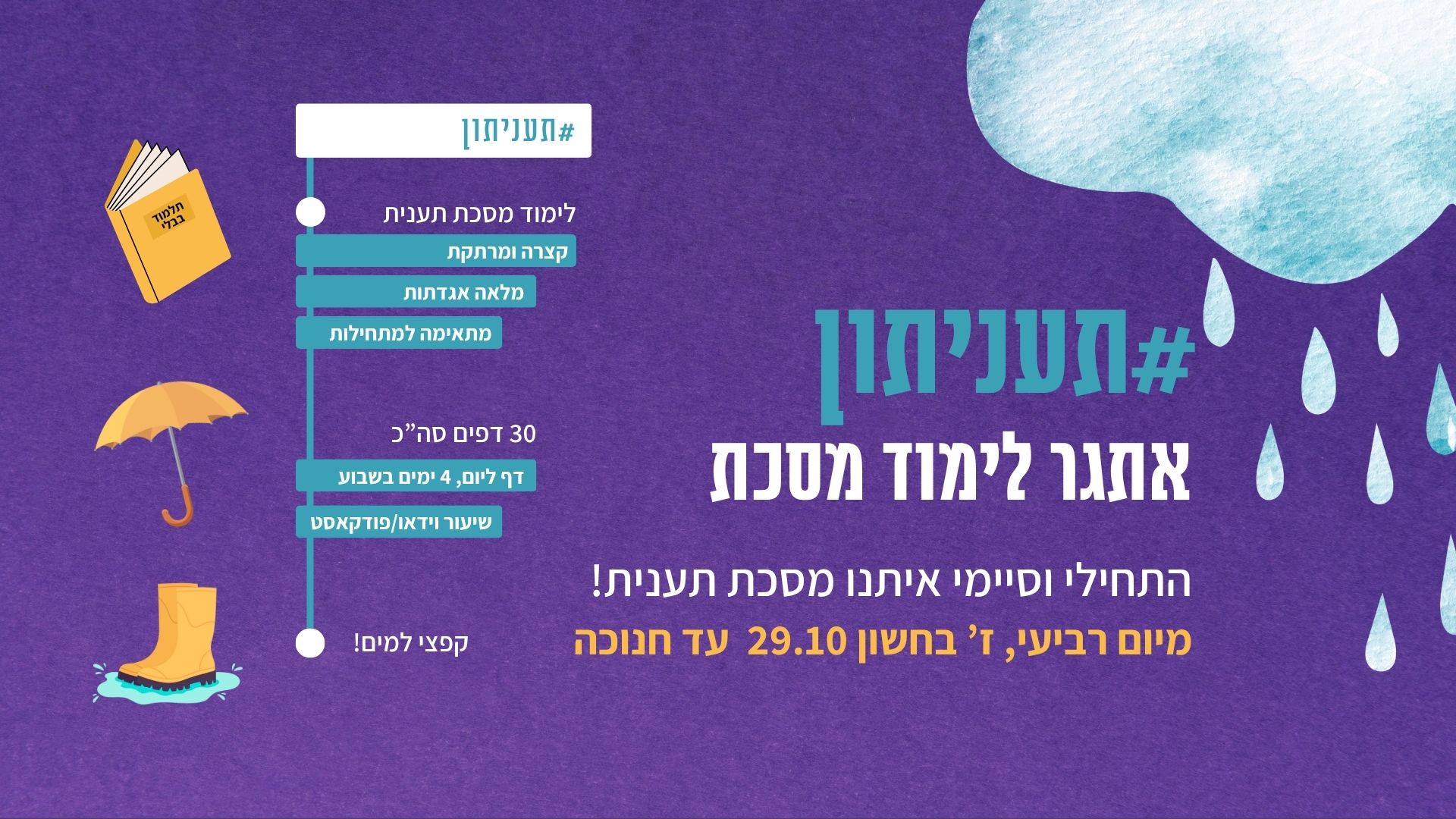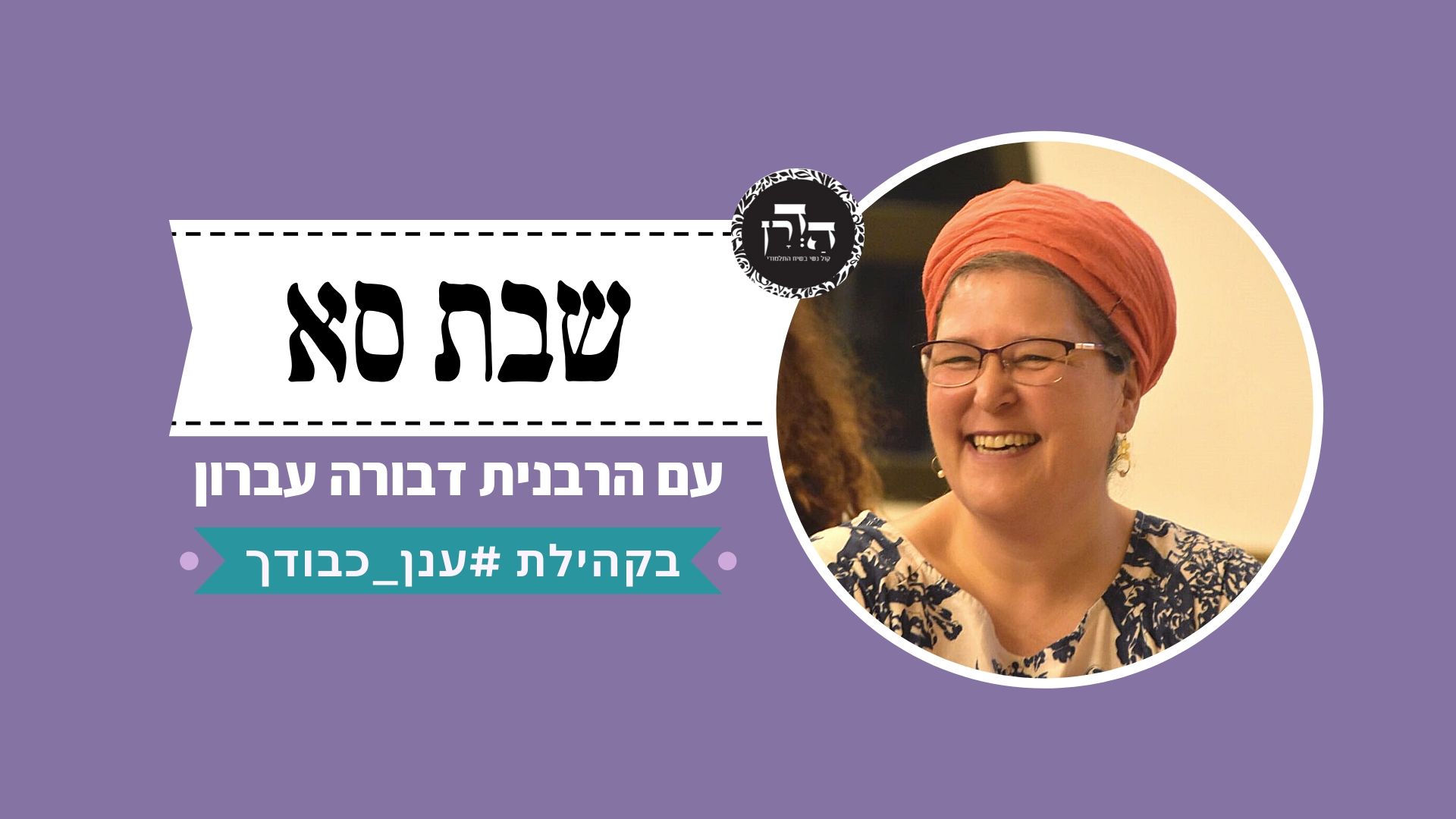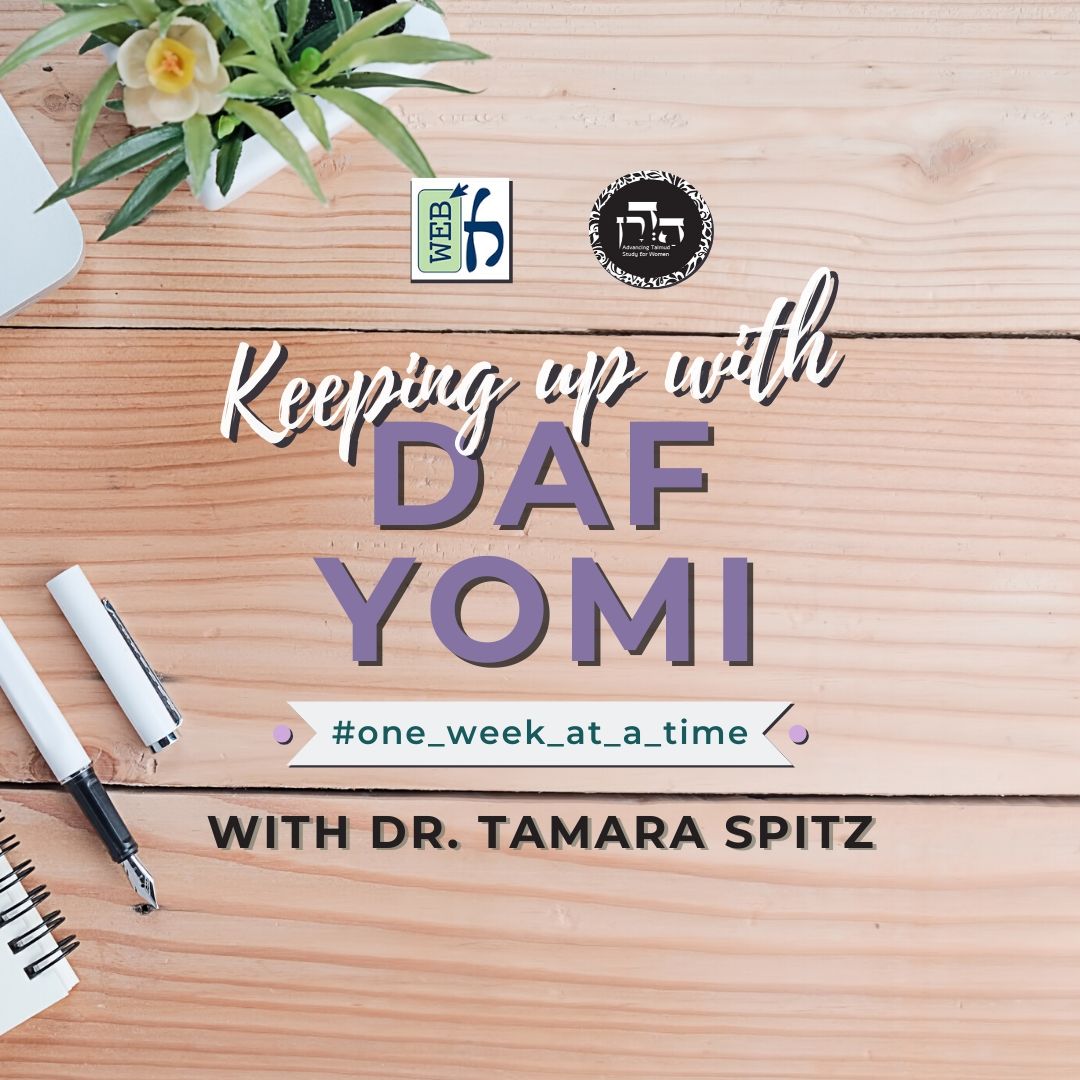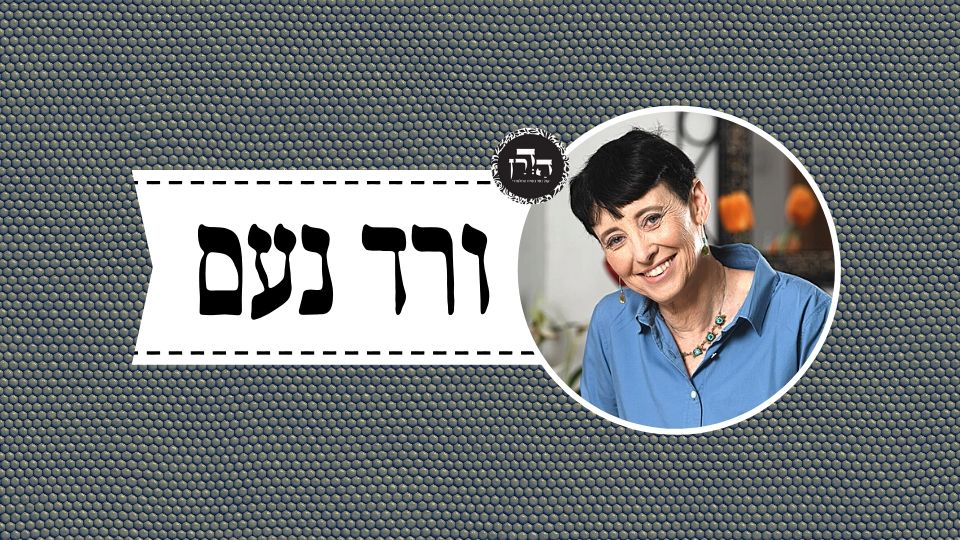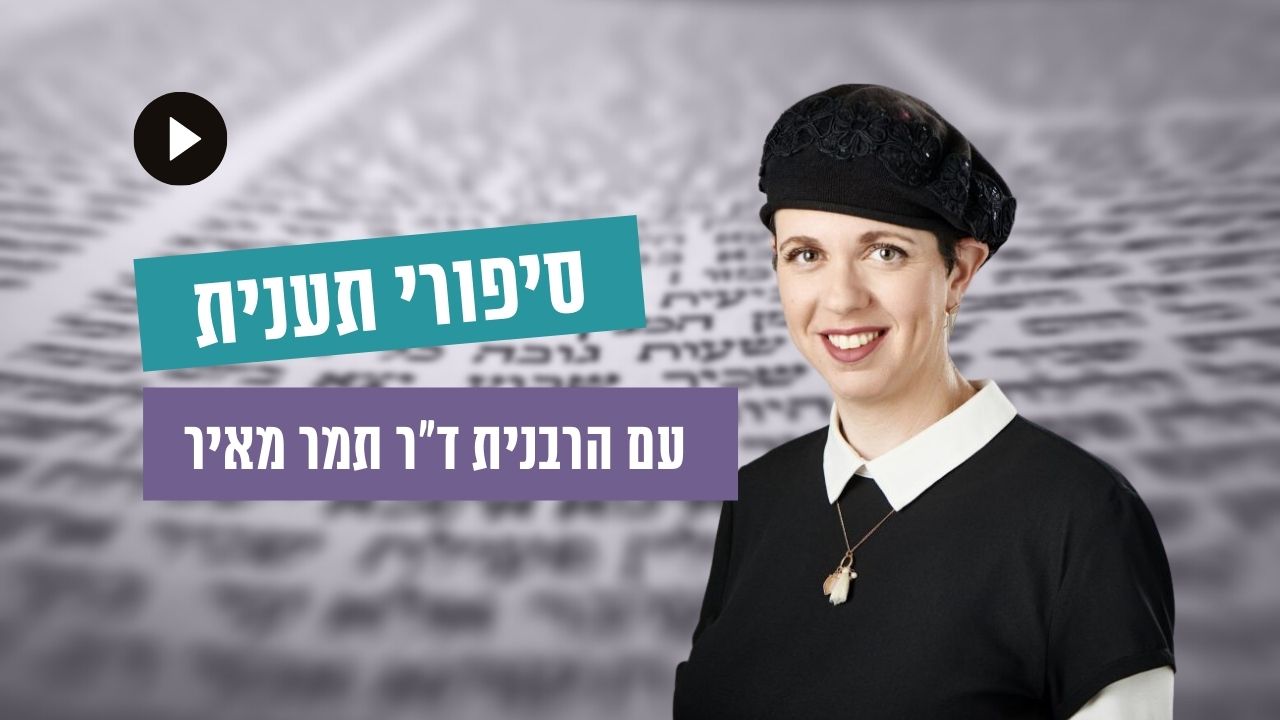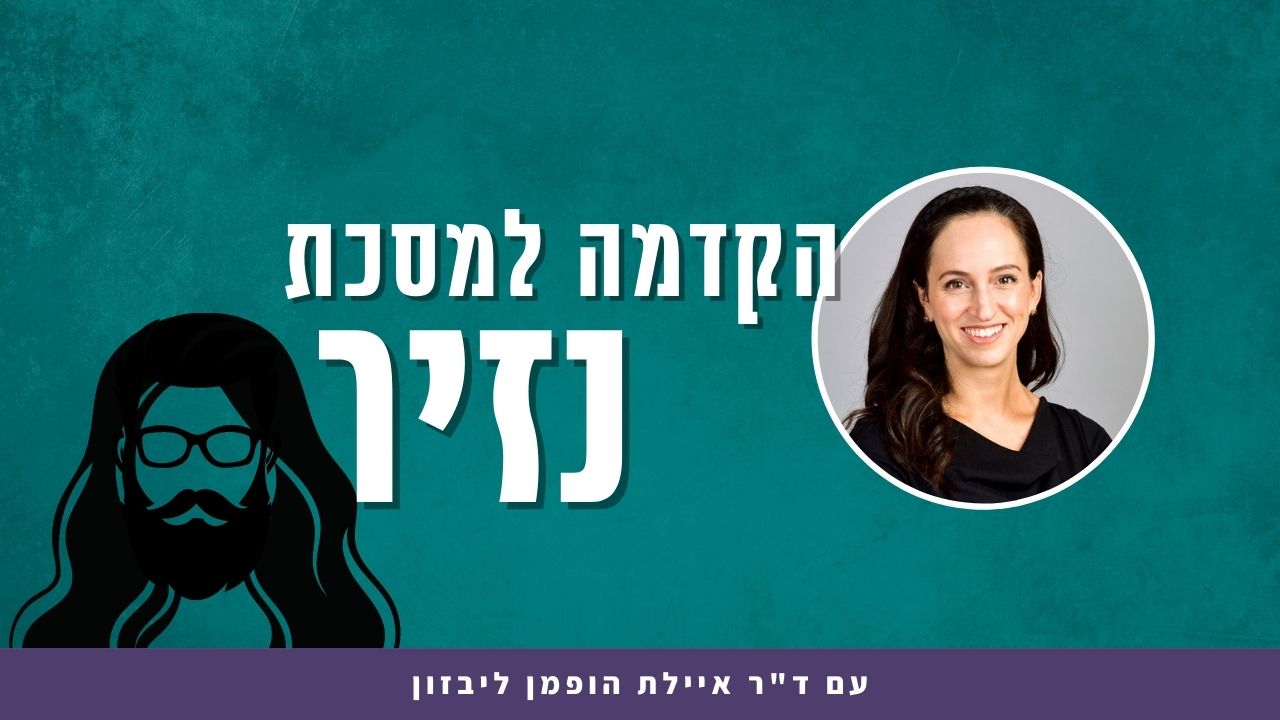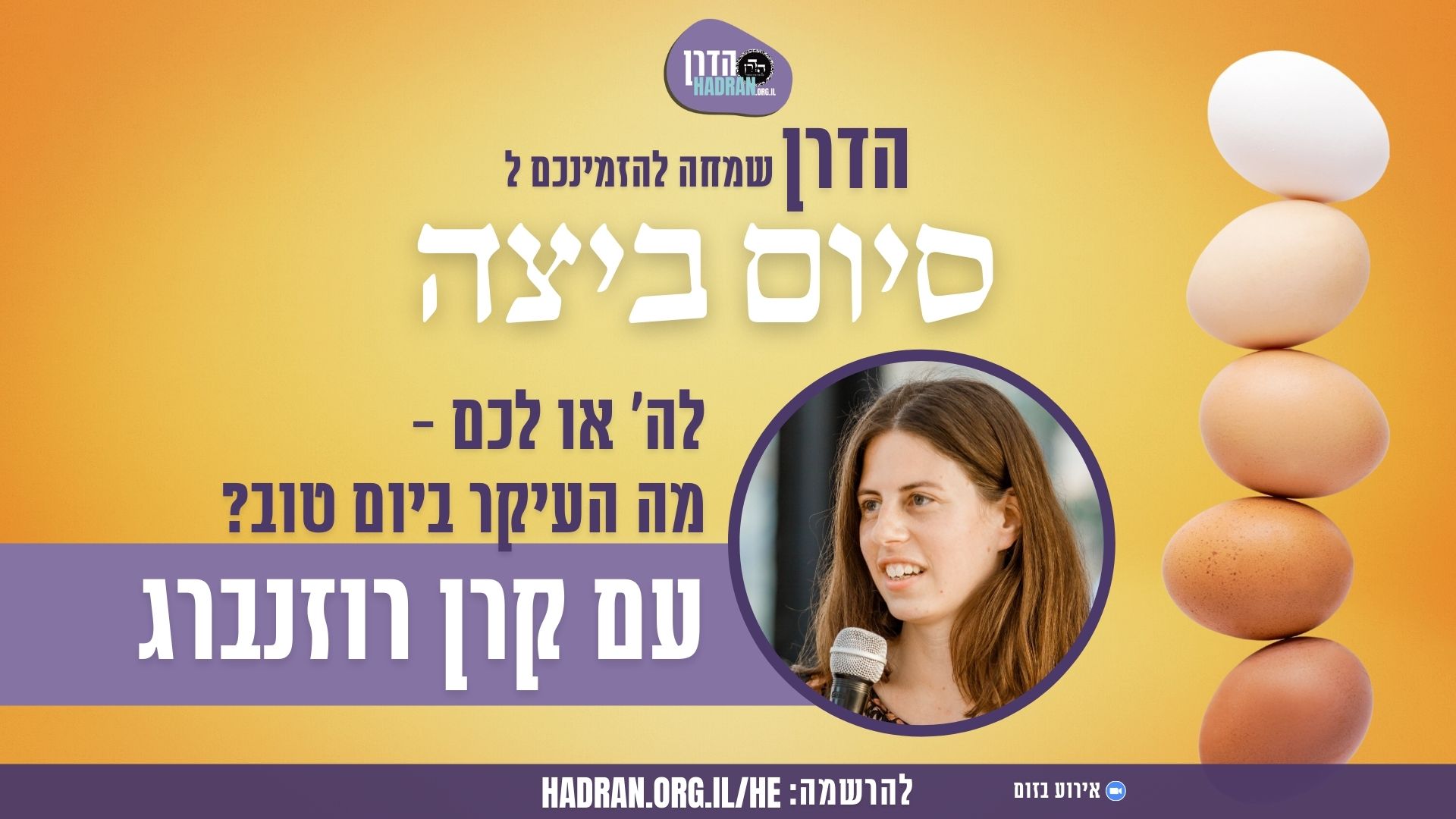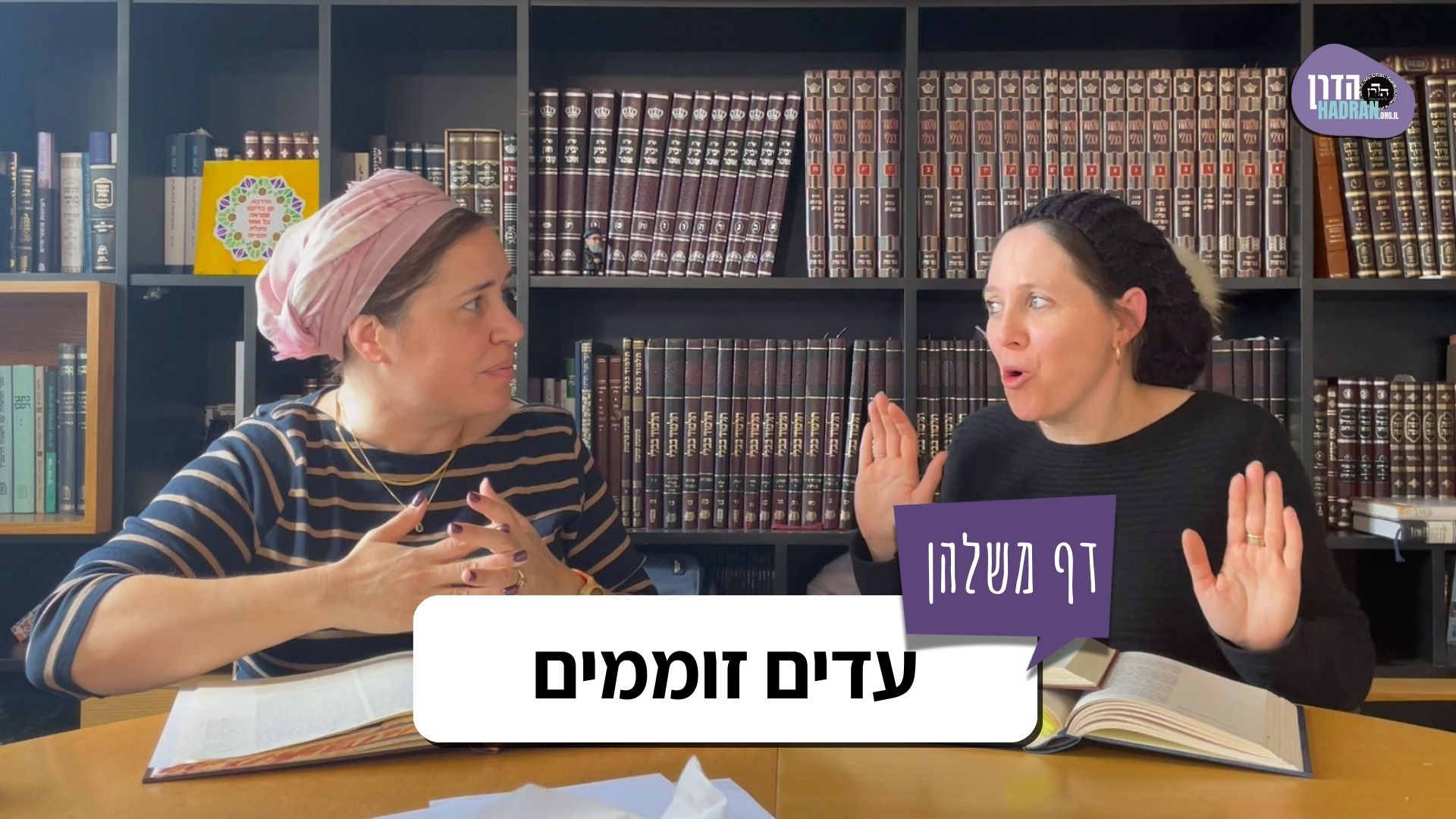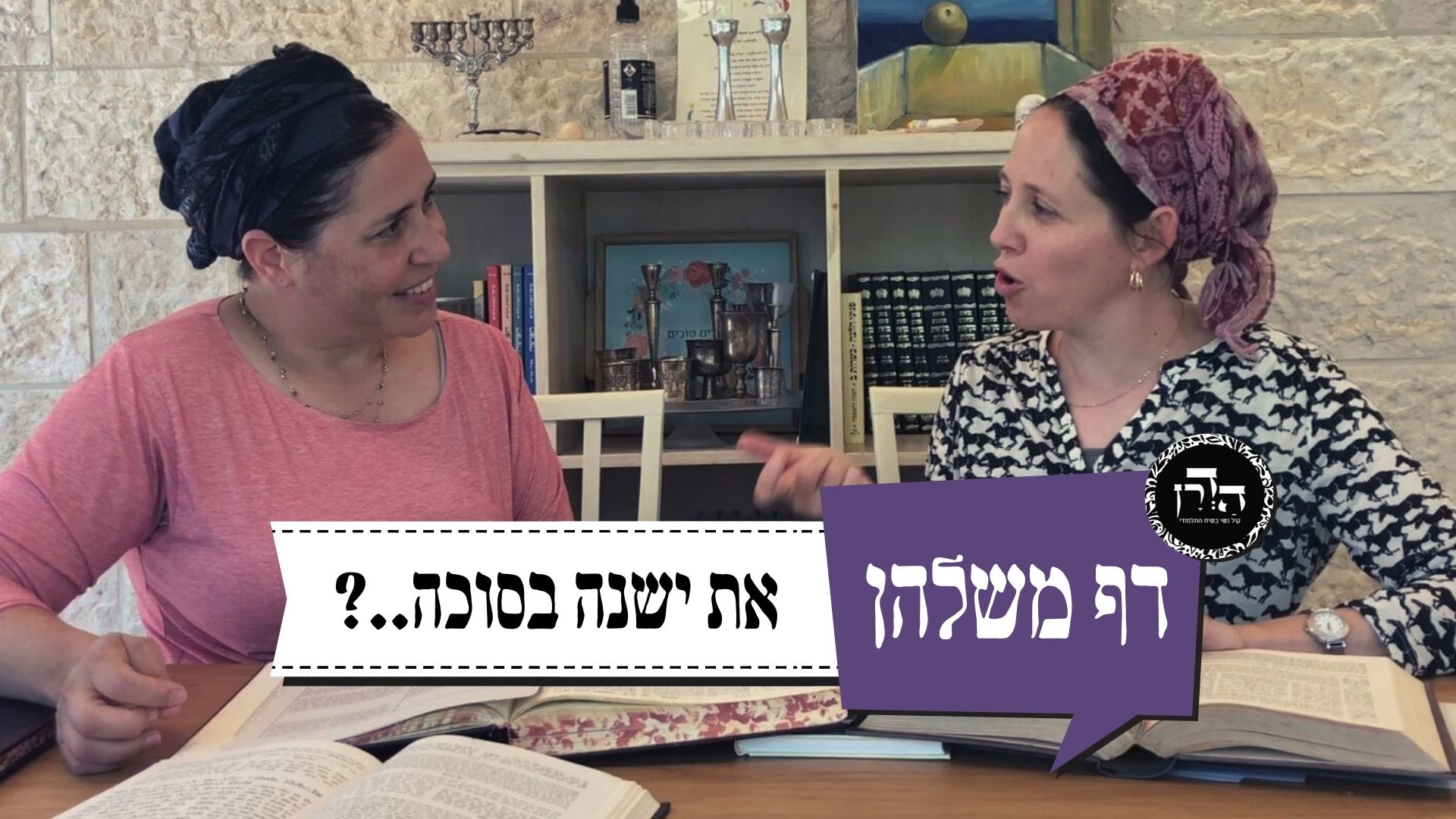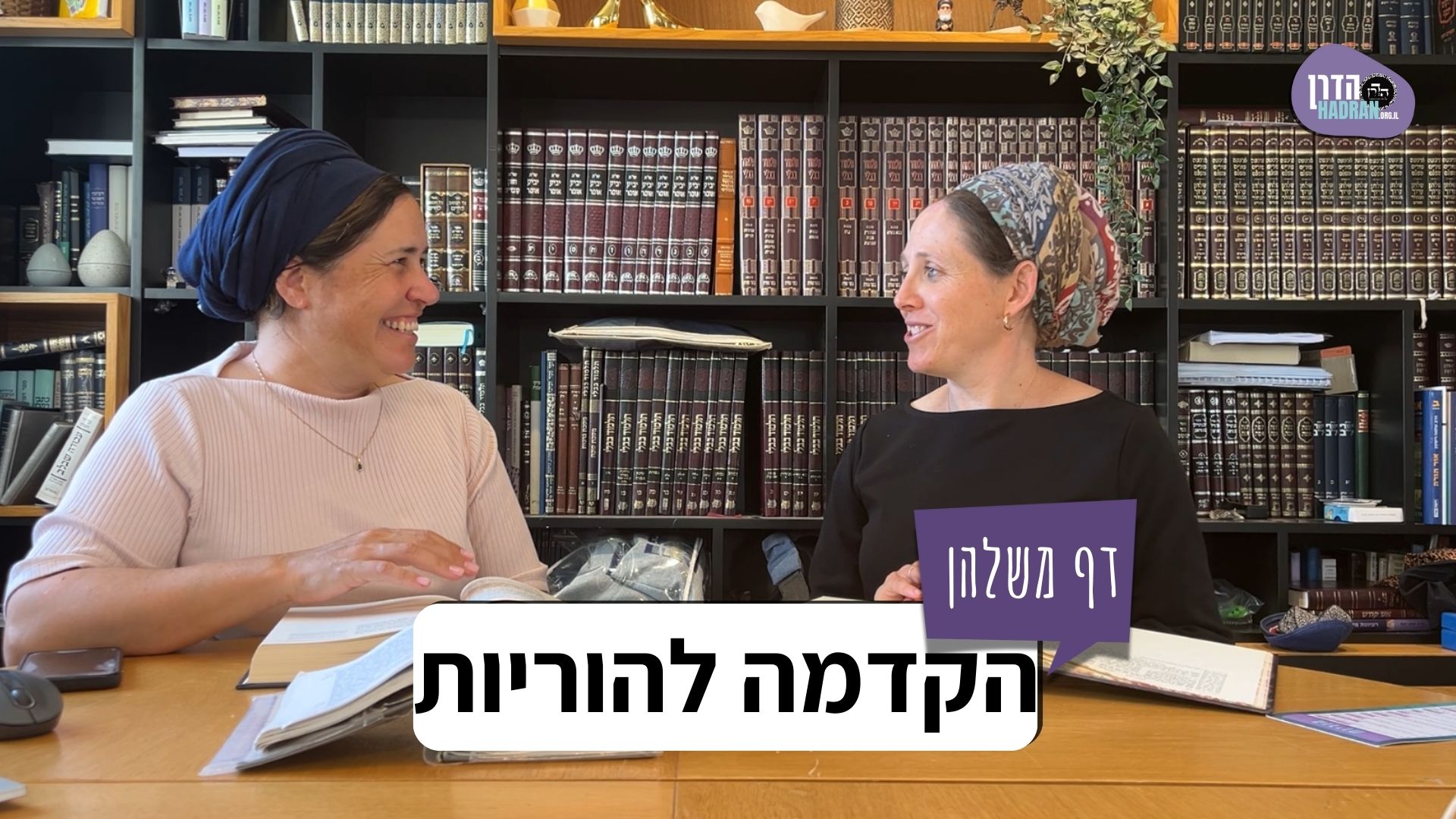>איזה רמת קדושה נשארת בבכור לאחר שנופל בו מום? האם אפשר להקיז דם לבכור שעלול למות אם לא מקיזים אם אולי יטיל בו מום?
הלימוד השבוע מוקדש לזכות ולשלום הַיְימׇנוֹט אֱמוּנָה בַּת באנצ’י (קָסָאוּ) בת 11 שנעלמה במקום מגוריה בצפת, לפני שנתיים, ביום ט”ז אדר תשפ”ד (25.2.24), ולא נודעו עקבותיה.
הלימוד השבוע מוקדש למען ביטחון המדינה, החיילים והאזרחים, ולמען חירותו של העם האיראני. שנזכה בקרוב שיתקיים בנו הפסוק: "לַיְּהוּדִים הָיְתָה אוֹרָה וְשִׂמְחָה וְשָׂשֹׂן וִיקָר”.
הלימוד השבוע מוקדש לזכות וְלִשְׁלוֹם הָיימָנוֹט אֱמוּנָה בַּת באנצ’י (קָסָאוּ), בת 11 שנעלמה במקום מגוריה בצפת, לפני שנתיים, ביום ט”ז אדר תשפ״ד (25.2.24), ולא נודעו עקבותיה. אנו מתפללים שֶׁתִּמָּצֵא וְתוּשַׁב לביתה במהרה!
רוצה להקדיש שיעור?

כלים
הלימוד השבוע מוקדש לזכות ולשלום הַיְימׇנוֹט אֱמוּנָה בַּת באנצ’י (קָסָאוּ) בת 11 שנעלמה במקום מגוריה בצפת, לפני שנתיים, ביום ט”ז אדר תשפ”ד (25.2.24), ולא נודעו עקבותיה.
הלימוד השבוע מוקדש למען ביטחון המדינה, החיילים והאזרחים, ולמען חירותו של העם האיראני. שנזכה בקרוב שיתקיים בנו הפסוק: "לַיְּהוּדִים הָיְתָה אוֹרָה וְשִׂמְחָה וְשָׂשֹׂן וִיקָר”.
הלימוד השבוע מוקדש לזכות וְלִשְׁלוֹם הָיימָנוֹט אֱמוּנָה בַּת באנצ’י (קָסָאוּ), בת 11 שנעלמה במקום מגוריה בצפת, לפני שנתיים, ביום ט”ז אדר תשפ״ד (25.2.24), ולא נודעו עקבותיה. אנו מתפללים שֶׁתִּמָּצֵא וְתוּשַׁב לביתה במהרה!
כלים
העמקה
רוצה להבין מה באמת קורה מתחת לפני השטח של הסוגיה?
שיעורים, פודקאסטים והרחבות של מיטב המורות שלנו יפתחו לך עוד זוויות וכיווני חשיבה.
חדשה בלימוד הגמרא?
זה הדף הראשון שלך? איזו התרגשות עצומה! יש לנו בדיוק את התכנים והכלים שיעזרו לך לעשות את הצעדים הראשונים ללמידה בקצב וברמה שלך, כך תוכלי להרגיש בנוח גם בתוך הסוגיות המורכבות ומאתגרות.
פסיפס הלומדות שלנו
גלי את קהילת הלומדות שלנו, מגוון נשים, רקעים וסיפורים. כולן חלק מתנועה ומסע מרגש ועוצמתי.
בכורות לג
וּבֵית הִלֵּל: הָנֵי מִילֵּי תָּם, אֲבָל בַּעַל מוּם כְּתִיב ״הַטָּמֵא וְהַטָּהוֹר יַחְדָּיו יֹאכְלֶנּוּ״, וּמָה טָמֵא שֶׁאֵינוֹ אוֹכֵל בְּקָדָשִׁים קַלִּים אוֹכֵל בִּבְכוֹר, זָר שֶׁאוֹכֵל בְּקָדָשִׁים קַלִּים אֵינוֹ דִּין שֶׁיֹּאכַל בִּבְכוֹר.
And Beit Hillel would respond to that claim: This statement applies only to an unblemished firstborn offering, which is sacrificed upon the altar. But concerning a blemished firstborn it is written: “You shall eat it within your gates; the impure and the pure may eat it alike” (Deuteronomy 12:22; see Deuteronomy 15:22). Beit Hillel derive an a fortiori inference: And if a ritually impure priest, who may not eat the meat of offerings of lesser sanctity, nevertheless may eat the meat of a blemished firstborn offering, then with regard to a non-priest, who may eat the meat of offerings of lesser sanctity, e.g., peace offerings and animal tithe offerings, is it not logical that he may eat the meat of a blemished firstborn offering?
אִיכָּא לְמִיפְרַךְ: מָה לְטָמֵא, שֶׁכֵּן הוּתַּר מִכְּלָלוֹ בַּעֲבוֹדַת צִבּוּר!
The Gemara raises a difficulty: This a fortiori inference can be refuted: What is notable about the case of a ritually impure priest? It is notable in that its general prohibition was permitted in certain circumstances, specifically with regard to the communal service. If there are no ritually pure priests, the sacrificial service may be performed by ritually impure priests. By contrast, it is never permitted for a non-priest to perform the sacrificial service. Accordingly, one cannot derive the halakha concerning a non-priest via an a fortiori inference from an impure priest.
וּבֵית הִלֵּל, אַטּוּ בַּעֲבוֹדָה קָאָמַר? בַּאֲכִילָה קָאָמְרִינַן, אֲכִילַת זָר עֲדִיף.
And Beit Hillel would respond: Is that to say that the a fortiori inference was stated with regard to the sacrificial service, which was the subject of that refutation? Not so; rather, we state it with regard to the eating of sacrificial meat, and the eating of a non-priest is superior to that of a ritually impure priest. Accordingly, the refutation of the a fortiori inference is inapplicable.
וְרַבִּי עֲקִיבָא מַתִּיר, וַאֲפִילּוּ גּוֹי. מַאי טַעְמָא דְּרַבִּי עֲקִיבָא? ״כַּצְּבִי וְכָאַיָּל״ — מָה צְבִי וְאַיָּל מוּתָּר לְגוֹי, אַף פְּסוּלִין מוּתָּר לְגוֹי.
§ The baraita stated that according to Rabbi Akiva, Beit Hillel deems it permitted for non-priests, and even gentiles, to partake of blemished firstborn offerings. The Gemara asks: What is the reason of Rabbi Akiva? The verse states: “Like the gazelle and like the deer” (Deuteronomy 15:22). Just as a gazelle and a deer are permitted to be eaten by a gentile, so too, disqualified blemished firstborn offerings are permitted to be eaten by a gentile.
וְאִידַּךְ? תְּלָתָא ״צְבִי וְאַיָּל״ כְּתִיבִי, חַד לְכִדְרַבִּי יִצְחָק, וְחַד לְכִדְרַבִּי אוֹשַׁעְיָא, וְחַד לְכִדְרַבִּי אֶלְעָזָר הַקַּפָּר.
The Gemara asks: And the other one, i.e., the tanna who disagrees with Rabbi Akiva’s version of the opinion of Beit Hillel, who does not deem it permitted for a gentile to partake of a blemished firstborn offering, what is his reason? The Gemara answers that the terms “gazelle” and “hart” are written three times in the context of disqualified consecrated animals, in Deuteronomy 12:15, 12:22, and 15:22. One is required for the statement of Rabbi Yitzḥak and Rabbi Oshaya, and one is needed for the statement of Rabbi Elazar HaKappar.
וְאִידַּךְ? מָה צְבִי וְאַיָּל פְּטוּרִים מִן הַבְּכוֹרָה, אַף פְּסוּלֵי הַמּוּקְדָּשִׁין פְּטוּרִין מִן הַבְּכוֹרָה.
And the other verse teaches that just as a gazelle and a deer are exempt from the first of their offspring being counted a firstborn, as the verse states: “All the firstling males that are born of your herd and of your flock” (Deuteronomy 15:19), referring specifically to domesticated animals but not undomesticated animals such as a gazelle and a deer; so too, disqualified consecrated animals are exempt from the first of their offspring being counted a firstborn (see 14a).
תָּנוּ רַבָּנַן: בְּכוֹר אֵין מַאֲכִילִין אוֹתוֹ לְנִדּוֹת, דִּבְרֵי בֵּית שַׁמַּאי. וּבֵית הִלֵּל אוֹמְרִים: מַאֲכִילִין אוֹתוֹ לְנִדּוֹת. מַאי טַעְמָא דְּבֵית שַׁמַּאי? דִּכְתִיב: ״וּבְשָׂרָם יִהְיֶה לָךְ״, מָה הָתָם נִדּוֹת לָא, אַף הָכָא נִדּוֹת לָא.
§ The Sages taught in a baraita: One may not give a blemished firstborn offering to menstruating women to eat; this is the statement of Beit Shammai. And Beit Hillel say: One may give it to menstruating women to eat. The Gemara asks: What is the reason of Beit Shammai? It is written with regard to the firstborn offering: “And their flesh shall be yours, as the wave breast and the right thigh” (Numbers 18:18). Just as there, with regard to the wave breast and the right thigh, menstruating women may not eat them, as these consecrated meats may not be eaten by a ritually impure individual, so too here, with regard to the firstborn offering, menstruating women may not eat its meat, as it too is consecrated.
וּבֵית הִלֵּל: הָנֵי מִילֵּי תָּם, אֲבָל בַּעַל מוּם — ״הַטָּמֵא וְהַטָּהוֹר יֹאכְלֶנּוּ״.
And Beit Hillel would respond: This statement, i.e., this verse, is referring only to the meat of an unblemished firstborn offering. Only such meat is compared to the wave breast and the right thigh. But with regard to a blemished firstborn offering, the verse explicitly states that the impure and the pure may eat it (see Deuteronomy 15:22).
וּבֵית שַׁמַּאי, הָנֵי מִילֵּי הֵיכָא דְּאֵין טוּמְאָה יוֹצְאָה עָלָיו מִגּוּפוֹ, אֲבָל הֵיכָא דְּטוּמְאָה יוֹצְאָה עָלָיו מִגּוּפוֹ — לָא.
And Beit Shammai would claim: This statement, that the ritually impure may eat the meat of a blemished firstborn offering, applies only where the impurity does not issue upon him from his own body but is contracted from an external source, e.g., from a corpse or the carcass of a creeping animal. But where the impurity issues upon him from his own body, such as in the case of a zav or a menstruating woman, that individual may not eat the meat of a blemished firstborn offering.
דְּאַשְׁכְּחַן דְּפַלֵּיג רַחֲמָנָא בֵּין טוּמְאָה יוֹצְאָה עָלָיו מִגּוּפוֹ, לְבֵין שֶׁאֵין טוּמְאָה יוֹצְאָה עָלָיו מִגּוּפוֹ, דִּתְנַן: הַפֶּסַח שֶׁבָּא בְּטוּמְאָה — לֹא יֹאכְלוּ מִמֶּנּוּ זָבִים וּמְצוֹרָעִין וְזָבוֹת וְנִדּוֹת וְיוֹלְדוֹת.
Beit Shammai continue: This is a valid distinction, as we find that the Merciful One distinguishes between a case where the impurity issues upon an individual from his own body and between a case where the impurity does not issue upon him from his own body. As we learned in a mishna (Pesaḥim 95b): When the Paschal offering is sacrificed in a state of ritual impurity, due to the fact that the majority of the Jewish people are ritually impure, then zavim and lepers and zavot and menstruating women and women after childbirth may not eat from it. The sacrificing of the Paschal offering overrides only ritual impurity imparted by a corpse; it does not override other forms of ritual impurity.
וּבֵית הִלֵּל: הָתָם הוּא דְּגַלִּי רַחֲמָנָא ״טְמֵא נֶפֶשׁ״, אֲבָל הָכָא ״טָמֵא״ סְתָמָא כְּתִיב, לָא שְׁנָא.
And Beit Hillel would respond: It is only there, in the case of the Paschal offering, that a difference of that kind applies, as the Merciful One revealed that only an individual whose impurity did not issue from his own body is permitted to eat the Paschal offering, as the verse states: “Impure by reason of a dead body” (Numbers 9:10). But here, with regard to the firstborn offering, the term “impure” is written unspecified: “The impure and the pure may eat it alike.” Therefore, in this case there is no difference between the two types of impurity.
תָּנוּ רַבָּנַן: אֵין מַרְגִּילִין בְּיוֹם טוֹב, כַּיּוֹצֵא בּוֹ אֵין מַרְגִּילִין בַּבְּכוֹר, וְלֹא בִּפְסוּלֵי הַמּוּקְדָּשִׁין.
§ The Sages taught in a baraita: One may not skin an animal from its feet [margilin] on a Festival. Although it is permitted to slaughter and skin an animal on a Festival, one may not skin it in such a manner that he will retain the hide intact to function as a vessel. Similarly, one may not skin a firstborn offering from its feet, even on a weekday and even if it is blemished, nor is skinning by way of the feet permitted in the case of disqualified consecrated animals. Such an act is considered degrading to the animal, even if the animal has been redeemed and slaughtered.
בִּשְׁלָמָא יוֹם טוֹב — דְּקָא טָרַח טִירְחָא דְּלָא חֲזֵי לֵיהּ. אֶלָּא בְּכוֹר — מַאן תַּנָּא? אָמַר רַב חִסְדָּא: בֵּית שַׁמַּאי הִיא, דְּאָמַר אֵין מַאֲכִילִין אוֹתוֹ לְנִדּוֹת.
The Gemara asks: Granted, one may not skin an animal from its feet on a Festival, as one is thereby performing an effort whose outcome is not needed for use on the Festival. But with regard to a firstborn offering, who is the tanna who taught that skinning it from its feet is prohibited? Rav Ḥisda says: It is the opinion of Beit Shammai, who say that one may not feed the meat of a firstborn offering to menstruating women. According to Beit Shammai, a blemished firstborn retains its sanctity as though it were unblemished, and must be treated in the manner of sacrificial meat. Skinning an animal from its feet is considered an act inappropriate for such meat and is therefore prohibited.
וְלֹא בִּפְסוּלֵי הַמּוּקְדָּשִׁין. מַאן תַּנָּא? אָמַר רַב חִסְדָּא: רַבִּי אֶלְעָזָר בְּרַבִּי שִׁמְעוֹן הִיא, דִּתְנַן: הָיוּ לְפָנָיו שְׁתֵּי חַטָּאוֹת, אַחַת תְּמִימָה וְאַחַת בַּעֲלַת מוּם — תְּמִימָה תִּקְרַב, בַּעֲלַת מוּם תִּיפָּדֶה.
The Gemara analyzes the next clause of the baraita: Nor is skinning by way of the feet permitted in the case of disqualified consecrated animals. The Gemara asks: Who is the tanna who taught this? Rav Ḥisda says: It is Rabbi Elazar, son of Rabbi Shimon, as we learned in a baraita: One had before him two sin offerings that he consecrated to achieve atonement for his sin so that in the event that one of them was lost or died the other would effect atonement. One of them was unblemished and the other one became blemished after having been consecrated. The halakha is that the unblemished offering should be sacrificed, whereas the blemished one should be redeemed.
נִשְׁחֲטָה בַּעֲלַת מוּם, אִם עַד שֶׁלֹּא נִזְרַק דָּמָהּ שֶׁל תְּמִימָה — מוּתֶּרֶת, אִם מִשֶּׁנִּזְרַק דָּמָהּ שֶׁל תְּמִימָה — אֲסוּרָה.
The baraita continues: If the blemished animal was redeemed and slaughtered before the blood of the unblemished one was sprinkled on the altar to effect the atonement, the blemished animal is permitted to be eaten. But if the blemished one was slaughtered after the blood of the unblemished animal was already sprinkled upon the altar, the blemished animal is prohibited both in consumption and benefit. Since its owner’s atonement is effected by the sprinkling of the blood of the unblemished offering on the altar, at this stage the blemished animal must be put to death, in accordance with the halakha that a sin offering whose owner achieved atonement with another sin offering must die.
רַבִּי אֶלְעָזָר בְּרַבִּי שִׁמְעוֹן אוֹמֵר: אֲפִילּוּ בָּשָׂר בִּקְדֵירָה, וְנִזְרַק דָּמָהּ שֶׁל תְּמִימָה — אֲסוּרָה.
Rabbi Elazar, son of Rabbi Shimon, says: Even if the blemished animal was slaughtered and its meat is being cooked in the pot, and only then was the blood of the unblemished animal sprinkled on the altar, the meat of the blemished animal is still prohibited. Rabbi Elazar, son of Rabbi Shimon, maintains that disqualified blemished offerings retain a measure of their sanctity even after being slaughtered. Since the blemished sin offering was not yet eaten when the blood of the unblemished one was sprinkled, it is considered a sin offering whose owner has achieved atonement, and therefore it is prohibited for one to derive benefit from it. The opinion of Rabbi Elazar, son of Rabbi Shimon, accords with the ruling of the baraita with regard to skinning a disqualified consecrated animal from its feet.
וְרַב חִסְדָּא, לוֹקְמַהּ כּוּלַּהּ כְּבֵית שַׁמַּאי! דִּלְמָא עַד כָּאן לָא קָאָמְרִי בֵּית שַׁמַּאי אֶלָּא בִּבְכוֹר, דִּקְדוּשָּׁתוֹ מֵרֶחֶם, אֲבָל פְּסוּלֵי הַמּוּקְדָּשִׁין דְּאֵין קְדוּשָּׁתוֹ מֵרֶחֶם — לָא.
The Gemara raises a difficulty: But let Rav Ḥisda establish the entire baraita in accordance with the opinion of Beit Shammai. The Gemara explains: Perhaps Beit Shammai say that the sanctity of a blemished offering is retained only in the case of a firstborn offering, as its sanctity is from the womb. But with regard to a disqualified consecrated animal, whose sanctity is not from the womb, perhaps they do not maintain that its sanctity remains even after it has been slaughtered. It is therefore necessary to attribute the latter clause of the baraita to Rabbi Elazar, son of Rabbi Shimon.
וְלוֹקְמַהּ כּוּלַּהּ כְּרַבִּי אֶלְעָזָר בְּרַבִּי שִׁמְעוֹן! דִּילְמָא עַד כָּאן לָא קָאָמַר רַבִּי אֶלְעָזָר בְּרַבִּי שִׁמְעוֹן הָתָם אֶלָּא פְּסוּלֵי הַמּוּקְדָּשִׁין, דְּאַלִּימִי לְמִיתְפַּס פִּדְיוֹנוֹ, אֲבָל בְּכוֹר דְּלָא אַלִּים לְמִיתְפַּס פִּדְיוֹנוֹ — לָא.
The Gemara suggests: But if so, let Rav Ḥisda establish the entire baraita in accordance with the opinion of Rabbi Elazar, son of Rabbi Shimon. The Gemara answers: Perhaps Rabbi Elazar, son of Rabbi Shimon, says that the sanctity of a slaughtered blemished offering is retained only there, with regard to other disqualified consecrated animals, because their level of sanctity is strong enough to transfer their sanctity to their redemption money. But with regard to a blemished firstborn offering, whose level of sanctity is not strong enough to transfer it to its redemption money, perhaps its sanctity is not retained, and therefore one may skin the hide from its feet.
וְרַבִּי אֶלְעָזָר בְּרַבִּי שִׁמְעוֹן לֵית לֵיהּ כׇּל פְּסוּלֵי הַמּוּקְדָּשִׁין נִמְכָּרִין בָּאִיטְלִיז וְנִשְׁקָלִין בְּלִיטְרָא? אַלְמָא דְּכֵיוָן דְּאִיכָּא רַוְוחָא לְהֶקְדֵּשׁ שָׁרֵי לֵהּ!
The Gemara asks: But doesn’t Rabbi Elazar, son of Rabbi Shimon, agree with the ruling of the mishna (31a) that all disqualified consecrated animals are sold in the butchers’ market and weighed and sold by the litra, in the manner of non-sacred meat? Certainly he agrees with that halakha. Evidently, since there is a benefit that accrues to the Temple treasury, the tanna of the mishna deems this permitted. As it was taught (31b), the meat of disqualified consecrated animals may be treated in this manner despite the fact that it retains a measure of sanctity. The reason is that if the owner knows that it is permitted for him to perform this more lucrative action, he is likely to spend more money to redeem the animal in the first place, which benefits the Temple treasury. By the same logic, why doesn’t Rabbi Elazar, son of Rabbi Shimon, permit the more lucrative action of skinning the animal from its feet?
אָמַר רַב מָרִי בְּרֵיהּ דְּרַב כָּהֲנָא: מַה שֶּׁמַּשְׁבִּיחַ בָּעוֹר — פּוֹגֵם בַּבָּשָׂר. בְּמַעְרְבָא מִשְּׁמֵיהּ דְּרָבִינָא אָמְרִי: מִפְּנֵי שֶׁנִּרְאֶה כְּעוֹבֵד עֲבוֹדָה בְּקָדָשִׁים.
The Gemara cites several resolutions. Rav Mari, son of Rav Kahana, said that the benefit gained to the hide by skinning it whole is offset by the detriment caused to the flesh. Part of the animal’s flesh is severed from the carcass during the skinning process, thereby lowering its value. In the West, Eretz Yisrael, they say in the name of Ravina that skinning a disqualified consecrated animal from its feet is prohibited because it appears as though he is performing work with sacrificial animals, which is prohibited.
רַבִּי יוֹסֵי בַּר אָבִין אוֹמֵר: גְּזֵירָה שֶׁמָּא יְגַדֵּל מֵהֶן עֲדָרִים עֲדָרִים.
Rabbi Yosei bar Avin says that this prohibition is a rabbinic decree, lest one retain the disqualified consecrated animals in his possession while waiting for a consumer to purchase the hides, and in the meantime raise many herds of disqualified animals from them. In such a case, he might shear or work the animals in a prohibited manner.
מַתְנִי׳ בְּכוֹר שֶׁאֲחָזוֹ דָּם, אֲפִילּוּ מֵת — אֵין מַקִּיזִין לוֹ דָּם, דִּבְרֵי רַבִּי יְהוּדָה. וַחֲכָמִים אוֹמְרִים: יַקִּיז, וּבִלְבַד שֶׁלֹּא יַעֲשֶׂה בּוֹ מוּם, וְאִם עָשָׂה בּוֹ מוּם — הֲרֵי זֶה לֹא יִשְׁחַט עָלָיו. רַבִּי שִׁמְעוֹן אוֹמֵר: יַקִּיז, אַף עַל פִּי שֶׁהוּא עוֹשֶׂה בּוֹ מוּם.
MISHNA: With regard to a firstborn animal that was congested with excess blood, even if the animal will die if one does not let the excess blood, one may not let its blood, as this might cause a blemish, and it is prohibited to cause a blemish on consecrated animals. This is the statement of Rabbi Yehuda. And the Rabbis say: One may let the blood provided that he will not cause a blemish while doing so, and if he caused a blemish, the animal may not be slaughtered on account of that blemish. Since he was the cause of the blemish, he may not slaughter the animal until it develops a different, unrelated blemish. Rabbi Shimon says: One may let the blood even if he thereby causes a blemish in the animal.
גְּמָ׳ תָּנוּ רַבָּנַן: בְּכוֹר שֶׁאֲחָזוֹ דָּם — מַקִּיזִין לוֹ אֶת הַדָּם בִּמְקוֹם שֶׁאֵין עוֹשִׂים בּוֹ מוּם, וְאֵין מַקִּיזִין לוֹ אֶת הַדָּם בִּמְקוֹם שֶׁעוֹשִׂין בּוֹ מוּם, דִּבְרֵי רַבִּי מֵאִיר.
GEMARA: The Sages taught in a baraita: With regard to a firstborn animal that was congested with excess blood, and which can be healed only through bloodletting, one may let the animal’s blood by cutting it in a place where the incision does not cause a permanent blemish. But one may not let the animal’s blood by cutting it in a place where the incision causes a permanent blemish, as it is prohibited to intentionally cause a blemish in a firstborn animal; this is the statement of Rabbi Meir.
וַחֲכָמִים אוֹמְרִים: אַף בִּמְקוֹם שֶׁעוֹשֶׂה בּוֹ מוּם, וּבִלְבַד שֶׁלֹּא יִשְׁחַט עַל אוֹתוֹ הַמּוּם. רַבִּי שִׁמְעוֹן אוֹמֵר: אַף נִשְׁחָט עַל אוֹתוֹ הַמּוּם. רַבִּי יְהוּדָה אוֹמֵר: אֲפִילּוּ מֵת — אֵין מַקִּיזִין לוֹ אֶת הַדָּם.
And the Rabbis say: One may even let the animal’s blood by cutting it in a place where the incision causes a permanent blemish, provided that he does not slaughter the animal on the basis of that blemish, even though in general, a firstborn animal may be slaughtered once it develops any permanent blemish. Rabbi Shimon says: The animal may even be slaughtered on the basis of that blemish. Rabbi Yehuda says: Even if the firstborn would die if its blood is not let, one may not let its blood at all.
מַתְנֵי לֵיהּ רַבִּי אֶלְעָזָר לִבְרֵיהּ, וְאָמְרִי לַהּ רַבִּי חִיָּיא לִבְרֵיהּ: כַּמַּחְלוֹקֶת כָּאן, כָּךְ מַחְלוֹקֶת בְּחָבִית שֶׁל תְּרוּמָה, דִּתְנַן: חָבִית שֶׁל תְּרוּמָה שֶׁנּוֹלַד בָּהּ סְפֵק טוּמְאָה — רַבִּי אֱלִיעֶזֶר אוֹמֵר: אִם הָיְתָה בִּמְקוֹם הַתּוּרְפָּה — יַנִּיחֶנָּה בְּמָקוֹם הַמּוּצְנָע, אִם הָיְתָה מְגוּלָּה — יְכַסֶּנָּה.
The Gemara relates: Rabbi Elazar taught his son, and some say it was Rabbi Ḥiyya who taught his son: Just as there is a dispute here in this baraita with regard to bloodletting, so there is a dispute in a mishna with regard to a barrel of teruma. As we learned (Terumot 8:8): In the case of a barrel of teruma oil with regard to which uncertainty developed concerning its status of ritual impurity, and which therefore may not be eaten, Rabbi Eliezer says that one must nevertheless safeguard the teruma from impurity. Therefore, if the barrel was resting in a vulnerable location, where it might come into contact with impurity, one should place it in a concealed location, and if it was exposed, he should cover it.
רַבִּי יְהוֹשֻׁעַ אוֹמֵר: אִם הָיְתָה מוּנַּחַת בְּמָקוֹם הַמּוּצְנָע — יַנִּיחֶנָּה בִּמְקוֹם הַתּוּרְפָּה, אִם הָיְתָה מְכוּסָּה — יְגַלֶּנָּה. רַבָּן גַּמְלִיאֵל אוֹמֵר: לֹא יְחַדֵּשׁ בָּהּ דָּבָר.
Rabbi Yehoshua says: That is not necessary. Rather, if it was placed in a concealed location, one may place it in a vulnerable location. If it was covered he may expose it, as he need no longer safeguard this teruma from impurity. Rabban Gamliel says: One should do nothing new with it, i.e., he should leave the barrel as it is.
רַבִּי מֵאִיר כְּרַבִּי אֱלִיעֶזֶר, וְרַבָּנַן כְּרַבִּי יְהוֹשֻׁעַ, וְרַבִּי יְהוּדָה כְּרַבָּן גַּמְלִיאֵל.
The Gemara clarifies: Rabbi Meir, who deems it permitted to let the firstborn offering’s blood provided that one does not cause a blemish, holds in accordance with the opinion of Rabbi Eliezer, who deems it prohibited to place the barrel in an exposed location lest it become ritually impure, which is equivalent to a blemish. And the Rabbis, who deem bloodletting permitted even if it will cause a blemish, hold in accordance with the opinion of Rabbi Yehoshua, who rules that the contents of the barrel may be exposed to ritual impurity. And Rabbi Yehuda, who says that bloodletting is not permitted under any circumstance, holds in accordance with the opinion of Rabban Gamliel, who rules that the barrel should be left as is and not be handled at all.
מִמַּאי? דִּלְמָא עַד כָּאן לָא קָאָמַר רַבִּי מֵאִיר הָתָם, דְּקָא עָבֵיד בְּיָדַיִם, אֲבָל הָכָא דִּגְרָמָא — כְּרַבִּי יְהוֹשֻׁעַ סְבִירָא לֵיהּ!
The Gemara rejects this suggestion: From where can one prove that these comparisons are accurate? Perhaps Rabbi Meir states his opinion, that one may not let blood in a place that will cause a blemish, only there, as the individual is causing the blemish by direct action. But here, in the case of the barrel, where the ritual impurity results from an indirect action, perhaps he holds in accordance with the opinion of Rabbi Yehoshua.
וְעַד כָּאן לָא קָאָמַר רַבִּי אֱלִיעֶזֶר הָתָם, אֶלָּא שֶׁמָּא יָבֹא אֵלִיָּהוּ וִיטַהֲרֶנָּה, אֲבָל הָכָא, דְּאִי שָׁבֵיק לֵיהּ מָיֵית — כְּרַבָּנַן סְבִירָא לֵיהּ!
And furthermore, perhaps Rabbi Eliezer states his opinion that the barrel should be protected only here, because perhaps Elijah will come and deem it ritually pure. But there, with regard to the firstborn offering, where if one leaves the animal it will certainly die, perhaps he holds in accordance with the opinion of the Rabbis, that bloodletting is permitted in order to prevent the animal’s death.
וְעַד כָּאן לָא קָאָמְרִי רַבָּנַן הָכָא, דְּאִי שָׁבֵיק לֵיהּ מָיֵית, אֲבָל הָתָם — שֶׁמָּא יָבֹא אֵלִיָּהוּ וִיטַהֲרֶנָּה, כְּרַבִּי אֱלִיעֶזֶר סְבִירָא לְהוּ! וְעַד כָּאן לָא קָאָמַר רַבִּי יְהוּדָה הָכָא, דְּקָא עָבֵיד בְּיָדַיִם, אֲבָל הָתָם דִּגְרָמָא — כְּרַבִּי יְהוֹשֻׁעַ סְבִירָא לֵיהּ!
And likewise, perhaps the Rabbis state their opinion only here, with regard to the firstborn offering, as if one leaves it, the animal will certainly die. But there, in the case of the barrel of teruma, perhaps they accept the claim that one must safeguard the teruma, because perhaps Elijah will come and deem it ritually pure, which would mean that they hold in accordance with the opinion of Rabbi Eliezer. It can also be suggested that Rabbi Yehuda states his opinion, that bloodletting is prohibited in all circumstances, only here, with regard to the firstborn offering, as the individual is causing the blemish by direct action. But there, in the case of the barrel, where the ritual impurity results from an indirect action, perhaps he holds in accordance with the opinion of Rabbi Yehoshua.
וְעַד כָּאן לָא קָאָמַר רַבָּן גַּמְלִיאֵל הָתָם, דְּשֶׁמָּא יָבֹא אֵלִיָּהוּ וִיטַהֲרֶנָּה, אֲבָל הָכָא, דְּאִי שָׁבֵיק לֵיהּ מָיֵית, כְּרַבָּנַן סְבִירָא לֵיהּ!
And perhaps Rabban Gamliel states his opinion, that the barrel should not be moved at all, only there, because perhaps Elijah will come and deem it ritually pure. But here, with regard to the firstborn offering, where if one leaves it, it will certainly die, it is possible that he holds in accordance with the opinion of the Rabbis.
וְעוֹד, הָכָא בִּקְרָאֵי פְּלִיגִי וְהָכָא בִּקְרָאֵי פְּלִיגִי, דְּאָמַר רַבִּי חִיָּיא בַּר אַבָּא אָמַר רַבִּי יוֹחָנָן: הַכֹּל מוֹדִים בִּמְחַמֵּץ אַחַר מְחַמֵּץ שֶׁהוּא חַיָּיב, דִּכְתִיב ״לֹא תֵאָפֶה חָמֵץ״ וְ״לֹא תֵעָשֶׂה״.
And furthermore, one cannot draw parallels between the opinions of the two sources, as here the tanna’im disagree with regard to the exposition of certain verses, and there they disagree with regard to the exposition of certain other verses. As Rabbi Ḥiyya bar Abba says that Rabbi Yoḥanan says: All of the Sages who disagree as to whether one may let the blood of the firstborn animal concede that one who leavens a meal offering after another had already leavened it is liable to receive lashes for the additional leavening, as it is written: “It shall not be baked with leaven” (Leviticus 6:10), and it is also stated: “No meal offering that you sacrifice to God shall be made with leaven” (Leviticus 2:11). This indicates that one is liable for every act of leavening performed on a meal offering.
בִּמְסָרֵס אַחֵר מְסָרֵס שֶׁהוּא חַיָּיב, דִּכְתִיב: ״וּמָעוּךְ וְכָתוּת וְנָתוּק וְכָרוּת״, אִם עַל כּוֹרֵת חַיָּיב, עַל נוֹתֵק לֹא כׇּל שֶׁכֵּן? אֶלָּא לְהָבִיא נוֹתֵק אַחַר כּוֹרֵת, שֶׁהוּא חַיָּיב.
Similarly, everyone agrees that one who castrates an animal after one who has already castrated it is liable, as it is written: “Those whose testicles are bruised or crushed or detached or cut shall not be offered to the Lord, and you shall not do this in your land” (Leviticus 22:24). If one is liable when the seminal vesicles are cut, then when the testicles are detached altogether, is he not all the more so liable? Rather, this verse serves to include one who detaches the testicles after one who cuts the seminal vesicles, to indicate that he is liable. Apparently, one is liable for castrating an animal that is already sterilized.
לֹא נֶחְלְקוּ אֶלָּא בְּמֵטִיל מוּם בְּבַעַל מוּם, דְּרַבִּי מֵאִיר סָבַר: ״כׇּל מוּם לֹא יִהְיֶה בּוֹ״, וְרַבָּנַן סָבְרִי: ״תָּמִים יִהְיֶה לְרָצוֹן״.
These Sages disagree only with regard to one who causes a blemish in an already blemished animal, such as one whose blood circulation is constricted. As Rabbi Meir maintains that as the verse states: “It shall be perfect to be accepted; there shall be no blemish in it” (Leviticus 22:21), this categorical statement includes even the causing of a blemish in an offering that is already blemished. And the Rabbis maintain that the phrase “It shall be perfect to be accepted” indicates that the prohibition against causing a blemish applies only to an animal that is currently perfect, i.e., unblemished, and can therefore be accepted, i.e., it is fit to be sacrificed upon the altar. If the animal is already blemished, there is no prohibition against causing an additional blemish in it.
וְרַבִּי מֵאִיר, הַאי ״תָּמִים יִהְיֶה לְרָצוֹן״ מַאי עָבֵיד לֵיהּ? מִיבְּעֵי לֵיהּ לְמַעוֹטֵי בַּעַל מוּם מֵעִיקָּרוֹ.
The Gemara asks: And Rabbi Meir, what does he do with this verse: “It shall be perfect to be accepted”? The Gemara answers: That verse serves to exclude only an animal that was blemished from the outset, i.e., an animal that was born with a blemish. In such a case, there is no prohibition against causing an additional blemish in it. But if the animal was initially unblemished and later developed a blemish, it is prohibited to cause another blemish in it.
בַּעַל מוּם מֵעִיקָּרוֹ — פְּשִׁיטָא, דִּיקְלָא בְּעָלְמָא הוּא!
The Gemara rejects this suggestion: There is no need to exclude an animal that was blemished from the outset, as it is merely like a palm tree, i.e., it can never attain the status of an animal consecrated as an offering. Therefore, it is obvious that the prohibition against causing a blemish does not apply to this animal.
אֶלָּא לְמַעוֹטֵי פְּסוּלֵי הַמּוּקְדָּשִׁין לְאַחַר פִּדְיוֹנָן, סָלְקָא דַּעְתָּךְ אָמֵינָא: הוֹאִיל וַאֲסִירִי בְּגִיזָּה וַעֲבוֹדָה — בְּמוּמִין נָמֵי לִיתַּסְרוּ, קָא מַשְׁמַע לַן.
Rather, Rabbi Meir maintains that the phrase “It shall be perfect to be accepted” serves to exclude disqualified consecrated animals, to teach that after their redemption, when they become non-sacred, the prohibition against causing a blemish does not apply to them any longer. This exclusion is necessary, as it might enter your mind to say that since even after they have been redeemed and are non-sacred, just as it is prohibited to shear these animals or use them for labor, perhaps let it also be prohibited to cause a blemish upon them. Consequently, this verse teaches us that there is no prohibition against causing a blemish in these animals.
וְרַבָּנַן נָמֵי, הָכְתִיב ״כׇּל מוּם לֹא יִהְיֶה בּוֹ״! לִגְרָמָא הוּא דְּאָתֵי, דְּתַנְיָא: ״מוּם לֹא יִהְיֶה בּוֹ״ — אֵין לִי
The Gemara asks: And as for the Rabbis as well, who derive their opinion from the verse: “It shall be perfect to be accepted,” isn’t it written: “There shall not be any blemish in it,” which indicates an expansion of the prohibition against causing a blemish upon an offering? The Gemara answers: That verse comes to teach that the prohibition against causing a blemish extends also to a blemish caused as the result of an indirect action. As it is taught in a baraita: The verse states: “There shall not be any blemish in it” (Leviticus 22:21); from here I have derived
